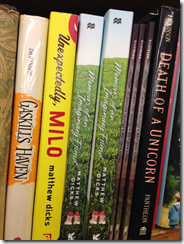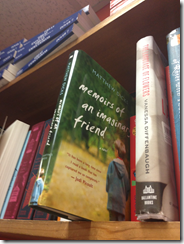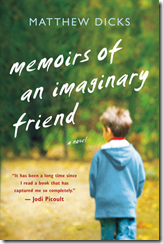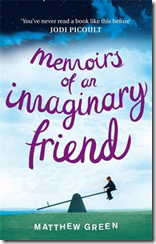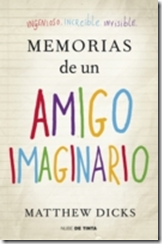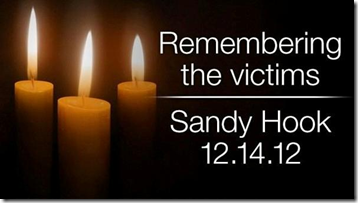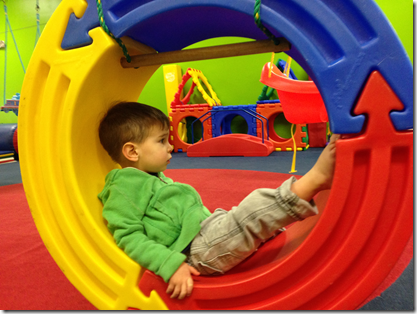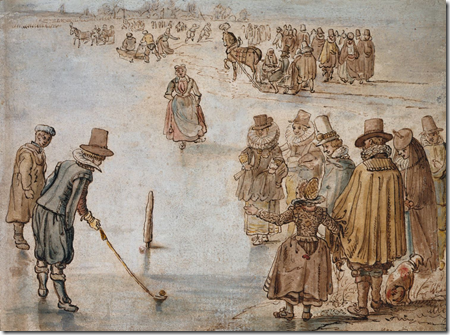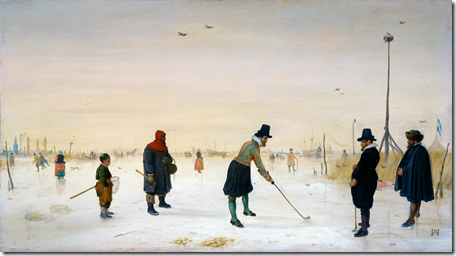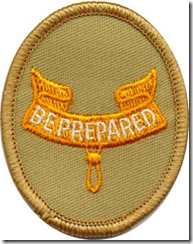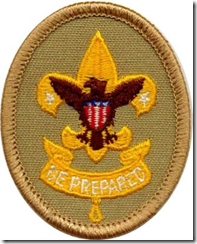Matthew Dicks's Blog, page 365
December 16, 2014
Just when I start to become a cynical, entitled, unappreciative jerk face, Jenny Slate comes along and sets me straight.
My heart still skips a beat every time I see one of my novels on a shelf in a bookstore or a library. I’m so glad.
Never take good fortune for granted. Never allow something that once thrilled you to become commonplace.
Remember your roots.
If only I could take my own advice.
I was listening to Jenny Slate on Marc Maron’s WTF podcast, and she was describing the moment when she was hired to work at Saturday Night Live. For Slate, this was a childhood dream come true. She began to cry as she told the story on the podcast and quickly apologized, explaining that she doesn’t cry often.
“It’s a beautiful story,” she said. “And sometimes I forget that.”
I loved that moment so much.
It was a reminder to never let your dream-come-true moment become anything less than that. Remember how precious and rare these moments are.
Over the course of this past weekend, I heard from readers in Malaysia, Mexico, Russia, Brazil, France, Australia, and Italy. They contacted me via email, Twitter, and Facebook. Some had questions about the book. Others offered kind words. One is a student of foreign languages at a Russian university. His class is reading my book this semester, and he needed some help with a class assignment.
My most recent novel, Memoirs of an Imaginary Friend, has been translated into more than 20 languages, so I hear from international readers often. I probably average a couple a day.
When I saw the pile of emails on Sunday morning, I groaned. I rolled my eyes. It would take at least 30 minutes to reply to them all. I’d be answering questions that I’ve answered a million times and thanking people who I will never meet. Instead of writing, I would be corresponding.
Then I remembered Jenny Slate and how incredibly lucky I am. How this pile of email from around the world represents by own dream come true. How my dream-come-true story is also beautiful, and sometimes I forget it,
Five years ago, I just wanted to publish a book. Receiving mail from readers around the world would’ve been a pipe dream. How quickly I had forgotten.
I answered each one with joy in my heart. Truly.
As I did, I thought about my agent, Taryn Fagerness, who is my partner and friend in this dream. She’s the one responsible for sending my books around the world. Far better books than mine receive far less international attention, and this is because I have Taryn and those other authors do not.
I thought about my wife, Elysha, who was the first person to tell me to write Memoirs of an Imaginary Friend. I had no desire to write that book. I thought it was a stupid idea. I thought it would go nowhere. Thank goodness she is smarter than me.
And I thought about Jenny Slate. I thought about how important it is to remember how fortunate I am. And I thought about what a jerk I was for being annoyed about the emails that I had to answer.
Hopefully the next time I start acting like an entitled jerk face, I have someone like Jenny Slate to remind me how lucky I am and how beautiful my story has been.
December 15, 2014
An elementary school teacher’s recollections from the day of the Newtown tragedy
Yesterday was the two year anniversary of the Sandy Hook tragedy in Newtown, Connecticut.
On that day back in 2012, I sat down and wrote something. Then I filed it away. I felt like today was the right day to finally post it.
_________________________________
I push it aside. Even though I’m an elementary school teacher in Connecticut, I am also the teacher of a class of fifth grade students, and we are in the midst of a lesson about dividing fractions. My students, who have spent the last two weeks trying to find common denominators, have just realized how much easier dividing fractions is and are clamoring for more problems in order to demonstrate their mathematical prowess.
I oblige. I push my curiosity and concern and mounting fear to the side because these kids need to learn about division at this moment and not about the possibility of dead students or dead teachers in a school that probably looks a lot like their own.
A little while later my students head to music class. I stop in the teacher’s room for news. “A teacher is dead,” I am told. “Maybe a few students, too.” It’s so quiet in the room. I have never heard such quiet in the teacher’s room before.
I return to the classroom. I find more news on the Internet. Twelve are reportedly dead. A mix of teachers and students. Two possible gunmen.
My students return from music class. They have been practicing for a vocal performance this afternoon. The ribbon cutting ceremony for our rooftop solar panels is scheduled for later today. Board of Education members, officials from the energy commission, and other dignitaries will be in attendance. It’s a big deal for our school, and the kids are excited.
I am no longer excited about anything. I am carrying a 500 pound burden on my back. Every teacher in every school across America, but especially here in Connecticut, is now carrying the same burden. Somewhere down the road in a town not unlike our own, a school has become the site of one of the worst shootings in American history.
But I am a teacher, so I must protect my students today. I must not allow this tragedy to creep into their lives until they are safely home with their parents. We don our masks as we stand before our classes, reading books, positing equations, asking questions, and demanding excellence. We pretend that the world is normal and that we are unchanged.
We did the same on 9-11. As our country was being attacked, I stood before my third graders and recited the poetry of Robert Frost and discussed the nuances of bar graphs. I still don’t know how I did it.
My students leave for lunch. I return to the Internet. The death count is at 26 now. At least 18 are children. The exact size of my class. I walk by a friend and his class on the way to the office. He teaches kindergarten. The same age as the kids in the shooting. I imagine his entire class disappearing forever.
When we practice for possible emergency situations, students ask lots of “What if?” questions.
What if I’m in the bathroom when the bad thing happens?
What happens if a bad man comes to our classroom door?
What if the bad man breaks the window and gets into our classroom?
I always answer the same way. “I would never let anyone hurt you. I would do everything to keep you safe. I promise. I am the great and powerful Mr, Dicks. You know that.”
I say this with the all the conviction I can muster, and my students believe me, because I believe it myself. I would stand between them and anything if necessary. But today, I wonder if I could have kept that promise had I been in that school. I would have tried my best, but I work in an elementary school. I never expected something like this. I realize that no matter what I tried, I wouldn’t be able to stop a man in body armor with automatic weapons and hundreds of rounds.
Tears fill my eyes, but I wipe them away before they have time to take hold. One of my students is moving away, and today is her last day at our school. I focus my attention on her instead. I plan for her last half hour with us. I push my teacher puppet forward. Inside, I am trembling with fear. It is a combination of my own battles with post-traumatic stress disorder, the fear of my inadequacy as a protector of my students, and the sudden realization that my own children are also living in this changed world. Clara is three years old and Charlie is six months old. They will learn about today’s events in the same way that my current crop of students learned about 9-11.
For my children, today will be a history lesson. For my students, it is their life and their world.
Meanwhile, I am reading The Day the Babies Ran Away to my students. I smile and ask questions and show my students the pictures as a police car parks outside my classroom. A precaution, I assume.
None of my students notice.
We spend an hour in the auditorium celebrating the installation of solar panels on the rooftop of our school. Our band plays “You are My Sunshine.” Our choir sings a song from last night’s winter concert. We watch a video that shows how the energy from the sun is converted to electricity. Our school’s acting troupe performs a skit demonstrating the value of clean energy. Our town’s mayor addresses our student body. A Board of Education member and several other dignitaries follow with brief speeches of their own. My soon-to-be departing student is chosen to cut the ceremonial ribbon.
The children laugh. They sit on the edge of their seats. They beam with pride over their school’s energy initiative. As they celebrate, their teachers pretend to celebrate. We are the real acting troupe on this day. We can think about nothing but an entire kindergarten class wiped off this Earth by a crazy man with a gun. We correct behavior and praise attentiveness and applaud our students’ performances, but we cannot stop thinking about the decisions and sacrifices made by our fellow teachers in a town just down the road.
We return to our classroom. Some of my students are crying now because their friend is leaving them for the last time. I watch them cry tears that I have been holding back all day long. I cannot afford to shed even a single tear for my departing student because the floodgate holding back my tears is a precarious one.
The principal comes on the intercom to remind teachers to be vigilant during dismissal today. His words are intentionally vague and nondescript, meant only for the ears of adults, but my students are the elder statesmen on the school and immediately know that something is wrong. Someone points to the police car in front of the school and connects it to the principal’s message. Eyes turn from the intercom speaker to the police cruise to me. The looks on their faces are that of concern and fear.
“Was there another shooting?” a student asks.
I can’t believe how quickly they have put it together. It takes everything I have to speak in a level voice. I tell the kids that something unfortunate has happened, but it has happened very far away and there is no danger. “When bad things happen, parents and teachers like to worry, so we’re just being extra careful today. But you have nothing to be afraid of and nothing to worry about. I promise you.”
The bell rings. Students leave. There are more tears for my departing student. Hugs. High fives. Assurances that calls and texts and emails are forthcoming. They are crying for the loss of their friend, and I want to cry to. I still cannot. The buses have yet to be called. I must continue to operate my teaching puppet for the sake of the students waiting for buses. I must look brave and calm and even happy for these children who are losing a friend and losing a little more of the innocence that their world once possessed.
In moments they will pass through the doors of my classroom and face the reality of what has happened in a school that looks so frightfully like their own. They will have to come to terms with the idea of twenty dead children in a school just like their own.
I don’t know how they will ever do it.
Who ever said that domestic violence and sexual assault are hard subjects to talk about? What’s the deal, NFL?
I applaud the NFL for their recent “No More” campaign, targeting domestic violence and sexual assault. I hope they continue to raise awareness and assist victims in every possible way.
But their recent series of television ads baffle me. The ads, which feature prominent football players staring in silence at the camera, end with the message:
Domestic violence and sexual assault are hard subjects for everyone to talk about. Help us start the conversation.
I don’t think that domestic violence and sexual assault are hard to talk about at all.
Does anyone?
Perhaps it would be difficult to talk about these subjects with my children or my fifth graders. Maybe it would be difficult to discuss if I were the perpetrator of these crimes. But what is so hard about discussing these topics with law-abiding adults?
I honestly don’t get it. I can’t think of a single person in my life with whom I couldn’t talk about sexual assault and domestic violence.
What am I missing?
December 14, 2014
Charlie found a whistle. And he was happy.
There are so many great reasons to have children.
I think this needs to be said more often, because whining about the challenges of parenting is a popular pastime in certain corners of this country.
Maybe every corner.
I have theories as to why this may be the case, but I’m writing a book on the subject, so you’ll have to wait and see what they are.
Regardless, one of the great things about having kids is the constant reminder about the joy of novelty and simple discovery.
Charlie found my whistle the other day, and it made his day.
Arrogance may be the perfect replacement to an extra hour or two of sleep
Some fascinating research seems to indicate that dwelling on how tired you are might actually make you more tired, and your perception of the quality of your sleep (regardless of reality) can impact your performance the following day.
I’ve always argued that one of the reasons that I’m able to sleep fewer hours than most people is my ability to sleep efficiently. I am asleep within a minute of closing my eyes each night, I don’t toss and turn throughout the night, and when I awake, I am instantly out of bed.
There is no wasted time in bed. I sleep, and then I leave. There is not lounging in bed in the morning. No book reading or television watching. I may only be in my bed for about four or five hours each night, but I am asleep for all of those hours.
Many (including my wife) think that my “efficient sleep” argument is nonsense.
It turns out that even if it’s nonsense, simply believing that it’s true may benefit me, thus making it true.
Huzzah.
December 13, 2014
I’m going to disagree with “I’m going to push back on that a little.”
“I’m going to push back on that a little.”
A phrase that seems to unfortunately be gaining in popularity, most often used by wishy-washy, namby-pamby cowards who are either:
Afraid of offending the speaker.
Afraid of taking the opposing position in the event that the speaker verbally obliterates that position.
Incapable of an original idea of their own..
“I’m going to push back on that” allows a person to disagree without taking an actual stand.
“I’m going to push back on that” allows a person to question to opinions and ideas without have an opinion or idea of their own.
“I’m going to push back on that a little” is the passive-aggressive way of saying, “I disagree with you” or “You’re wrong” or “I think you’re full of hooey!”
So let’s just stop using that ridiculous phrase. Okay?
Take a stand, damn it. Express an actual opinion. Defend a position. Choose your hill and die upon it if necessary.
Be anything but a passive-aggressive wimp.
December 12, 2014
Life is good when you’re two years-old
Kolf: Golf played on ice. And yes, we’re going to play it.
A friend sent me this pen and ink drawing from circa 1620 by the artist Hendrick Avercamp and purchased by King George III.
It’s kolf. Golf on ice.
Which, of course, is amazing.
There’s actually some scholarship on the rise and fall of the kolf (and it’s sister sport, colf), which was apparently (and stupidly) replaced by billiards as the preferred winter sport.
Living in New England, our golf season typically ends in November, and it doesn’t start up again until March or April. For three to five long months, we dream about golf but are unable to play.
Enter kolf.
I sent these images to my golfing buddies, one of whom happens to live on a pond that’s perfect for kolf. He’s also an obsessive compulsive perfectionist, and he is already planning the course, which will include holes sunken into the ice and bunkers made from snow.
It will be cold, and it will be frustrating, but it will also be amazing.
I can’t wait for the pond to freeze.
December 11, 2014
The Boy Scouts encourages rank advancement by making the first three ranks embarrassing and pathetic.
I’ve said many times that Boy Scouts was one of the best things that ever happened to me. The education that I received in Scouting probably contributed more to the person I am today than the entirety of my high school experience.
As a result, I don’t have too many bad things to say about the Boy Scouts. Their policies regarding homosexuality are improved but appalling, and I was never a fan of camp cuisine, but otherwise, it’s a nearly flawless organization in my experience.
But here’s something that has always amused me:
The Boy Scouts is an extreme meritocracy that uses ranks to delineate a boy’s level of achievement. The highest rank that a boy can attain is Eagle.
Before I turned eighteen and graduated out of Scouting, I had attained the second highest rank, Life. I actually had all of the requirements for Eagle (in spades), but an unfortunate set of circumstances prevented me from achieving Eagle.
I remain angry about to this day. Perhaps someday I will write about it.
But it’s the first three ranks that amuse me.
The first is Scout, designated by this patch, which is worn on the breast pocket of the uniform.
It is rank automatically conferred upon joining Boy Scouts, but it’s also not technically a rank. It’s a gift. A participation ribbon. So if you’re walking around with this patch, you’re a Scout without a rank.
You’re pathetic.
The first rank that you can earn is Tenderfoot. It actually requires that you demonstrate many useful skills, show measurable improvement in specific levels of physical fitness, and learn many meaningful things related to first aid, wilderness survival, and more. Most of the requirements would never be taught in a traditional classroom but are at least as valuable.
For that effort, you become a Tenderfoot. A wimp. A wuss. A pushover. Unadventurous. A boy with tender feet.
The second rank is Second Class. It’s requirements are even more demanding. Learn how to use a compass and a knife. Build fires. Cook food outdoors using fire and propane. Learn invaluable first aid skills. Demonstrate knowledge of indigenous plants and animals. Demonstrate your ability to swim. Earn and save money.
It’s a lot. It’s impressive. It’s invaluable.
For that, you become Second Class. Quite literally a second class citizen.
And frankly, a much lamer patch than the Tenderfoot. A reminder of the Scout motto, in case you’ve forgotten. A bit of rope that almost looks like a noose. No eagle or stars or red, white and blue shield.
Just a banner with a noose.
Finally you achieve a rank that does not make you sound like a loser:
First Class. It’s not easy to earn, but once you do, you can proclaim your rank with pride.
Of course, the patch for First Class is simply a combination of Tenderfoot and Second Class patches, so even though you have put those embarrassing days behind you, a reminder of them lives on your breast pocket until you make the next leap to Star then Life and finally Eagle.
December 10, 2014
Pineapples once were popular party accessories. And not for eating.
Did you know that pineapples were such a status symbol in 18th century England that you could rent one for the evening to take to a party?
This is also the reason there are pineapples atop some many trophies, such as Wimbledon men’s singles trophy.
People in 18th century England were very stupid.

